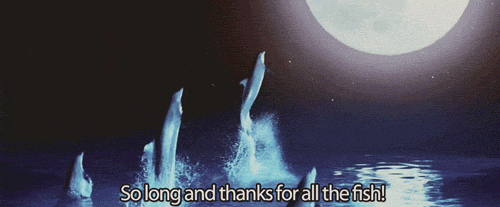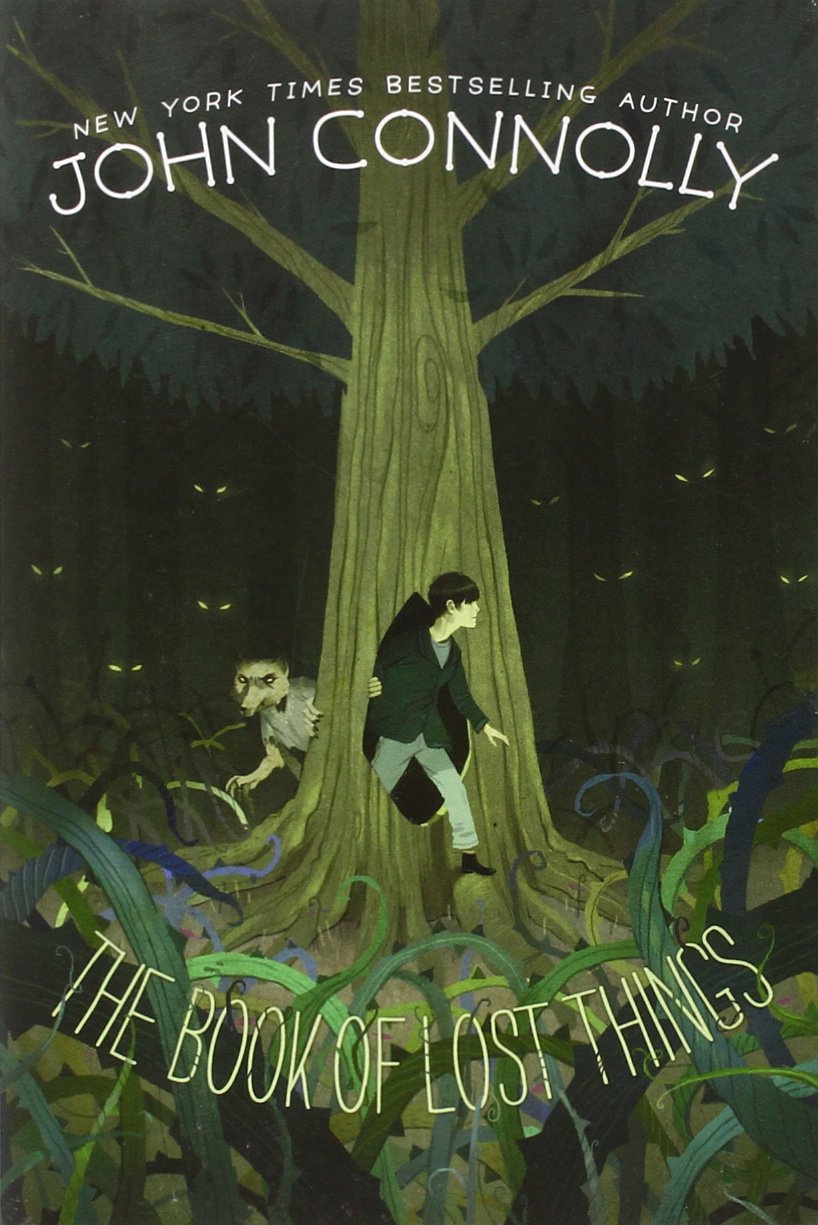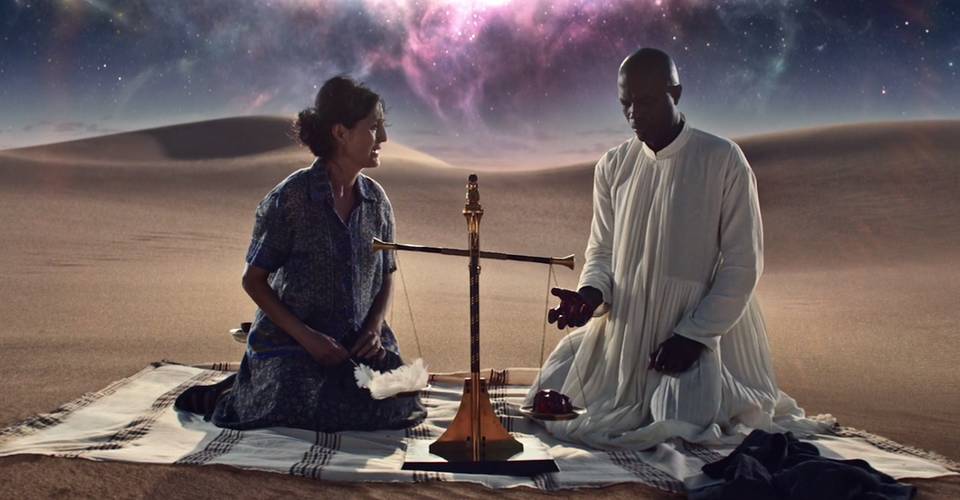My favorite book (counting it as one because I have it as one complete and ultimate anthology) is The Hitchhiker's Guide to the Galaxy. I own at least 2 and possibly as many as 6 different copies/versions. There's the copy I read:
But there is also the leather-bound copy with gilded edges. The paperback radio-script. The movie. The BBC miniseries (on Prime). All twelve episodes of the radio play. And most recently, this:
So Long and Thanks for All the Fish by Douglas Adams
Amazon Link
Now, why would I need a copy of just book 4 of the trilogy?
Before I answer that, let me tell you a story. Back before The Husband was The Husband, he worked at a bookstore. Dangerous place to get a paycheck if you are me, but luckily (I suppose) I did not work at that bookstore. But oh how I loved that bookstore. And I found out that people who work at these type of bookstores have access to things that I never dreamed of. Rare books. Databases. Dealers.
One day, the not-yet-husband gave me a gift. I don't remember if it was a Christmas gift, or a birthday gift, or a just-because gift, but this gift was a very effective love letter to me. He got me a very rare signed first edition of a book by one of my favorite authors (Smoke and Mirrors by Neil Gaiman). When he explained to me what he went through to get this book for me, that was one (of the many) moments that I knew this wonderful man loved me.
Over the years, I have acquired quite a few signed books, as gifts from friends, from The Husband, as lucky finds. It is important that you know that signed books are not for reading. They are for admiring.
What that means is that for every book of which I have a signed copy, I have a reading copy. We don't just go pawing signed books. We look with our eyes, but never touch with our hands.
Now, prepare yourselves. This is gonna get mushy.
I know that every signed book I've gotten from The Husband has been a love letter to me. He knows exactly the way to my heart. My love letter to him is in sharing my favorite books with him. He doesn't have to love them the way that I do, but getting a peek into these beloved books gives him a peek into my soul. Sometimes I feel like this is not enough, but those books make me who I am. Understanding my favorite books means he understands
me.
My favorite quote from this specific book (but not from the complete series) is from Wonko the Sane:
Fave quote:
“[T]he reason I call myself by my childhood name is to remind
myself that a scientist must also be absolutely like a child. If he sees
a thing, he must say that he sees it, whether it was what he thought he
was going to see or not. See first, think later, then test. But always
see first.
Otherwise you will only see what you were expecting” (Adams 587; emphasis added).
Now, I am no scientist (too much math involved) but I love this. Always see first.
When I saw this scribble on the front page of So Long and Thanks for All
the Fish, I don't know what I was expecting, but what I saw was yet
another love letter from The Husband. I've always wanted something signed
by Douglas Adams, but because he died almost 20 years ago, finding and
verifying items with his signature is decidedly more difficult than
finding signed Neil Gaimans, of which I have three signed items.
Have I mentioned how much I love The Husband? Not just because he knows my love language is books, but because he knows
which books, which means he
knows me. He sees me.











